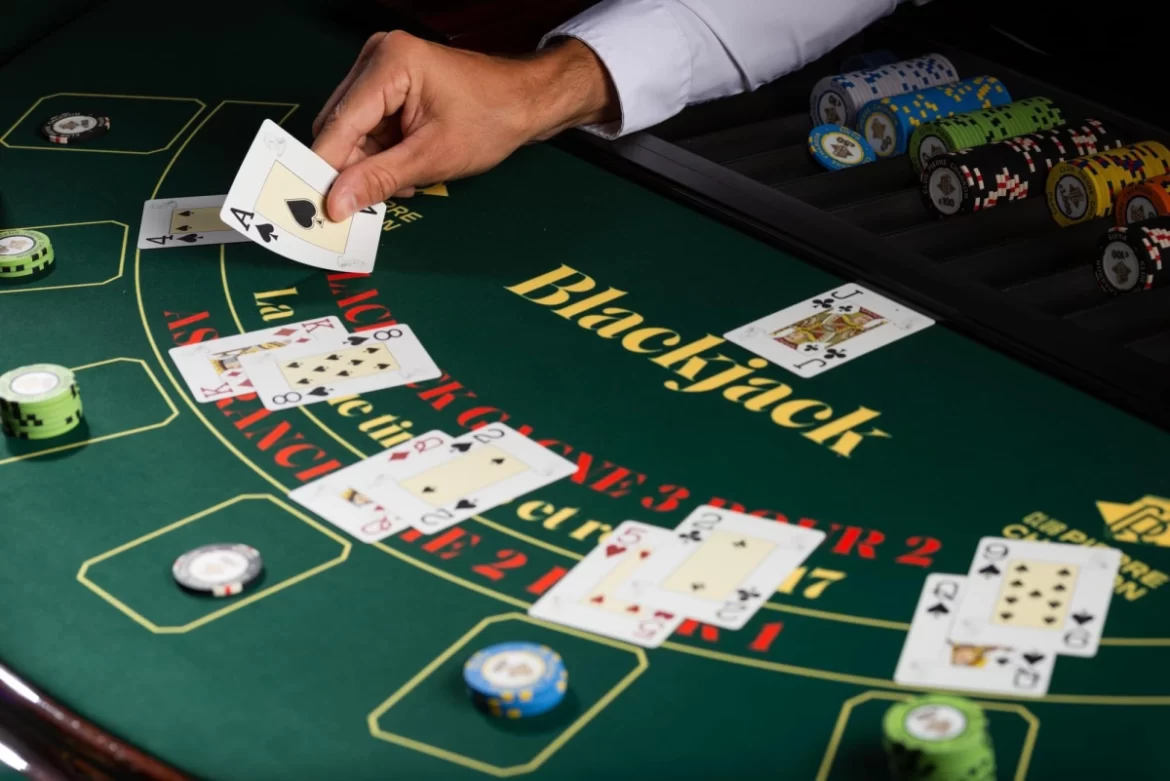Mathematicians and computer scientists alike have long been fascinated with blackjack. A player competes against a dealer to try to reach 21 without exceeding it and win by getting their hand total as close as possible to 21 without exceeding it.
Understanding probability can assist players in making smarter decisions at the table and increasing their odds of victory. Recent research from MIT and Caltech indicates that skilled blackjack players may gain an edge via quantum entanglement – something scientists call quantum superposition.
Probability
Learning the intricate details of blackjack requires developing an understanding of probability. As a mathematical concept, probability refers to the chance that something occurs and includes conditional probability, discrete random variables, continuous random variables, and joint probability distributions.
Probability is essential in making predictions, from forecasting earthquakes to determining whether it will rain. A wide array of activities necessitate probability skills.
Probability plays an integral part in blackjack’s house edge and understanding its evolution over time is essential for an understanding of its fluctuations. This is due to how busting odds depend on how many cards remain in the deck as well as game rules; for example, taking out one card increases player odds while decreasing dealer ones, with shifts in odds having an impactful effect on expectation levels; it’s therefore essential that one know how to calculate them accurately.
Variance
Anyone familiar with playing blackjack understands there is great variance associated with it, which comes from its unique format in which even with a slight edge players may experience streaks of both winning and losing hands. Understanding and adapting to this variance can be one of the hardest lessons for blackjack players to learn.
Computer analysis has shown that the optimal strategy for blackjack consists of a specific sequence of player moves based on cards held and dealer upcard. Unfortunately, however, its solution space is vast, providing almost an endless number of strategies.
Researchers from MIT and Caltech have come together to devise a novel strategy for solving this problem using quantum entanglement – one of the more unique ideas in modern physics – which describes how two entangled particles can communicate across spacetime regardless of their locations.
Strategy
Blackjack is an intricate game, and mastering its intricate strategy requires much practice and knowledge of its mathematics. But with some luck on your side and an understanding of its mathematical foundations, your odds could increase!
Mathematicians and computer scientists have long studied blackjack. Back in the 1960s, Edward Thorp authored his groundbreaking book Beat the Dealer with charts displaying an optimal “Basic Strategy”. Card counting later became another tool used by advantage players to negate the house edge.
Not only must skilled blackjack players know how to calculate probability, they must also be adept at quickly and accurately making decisions quickly and accurately. This requires engaging the prefrontal cortex of their brain which plays an integral part in higher order cognitive processes like decision-making and reasoning.
Researchers from MIT and Caltech have recently made an exciting discovery: quantum entanglement could give players an advantage when playing blackjack. Their paper in Physical Review A details an unusual scenario in which two players work together using quantum systems to track and exchange cards effectively against the dealer.
Psychology
Blackjack is a game of skill and strategy, but can also present psychological challenges for its players. They must overcome emotions to make wise decisions that maximize their odds of victory – understanding how luck affects betting strategies while keeping an eye out for other players’ tells and body language is important as is knowing how to manage bankroll without chasing losses or playing on tilt.
Blackjack’s unpredictable nature can stimulate the brain’s adrenaline system and result in increased focus and attention; however, too much stimulation could cause impulsive decision making and diminish strategic thinking abilities.
Quantum entanglement is one of the more bizarre concepts in modern physics, enabling two entangled particles to communicate their states instantly, no matter how far apart they may be in space. Recently, researchers from MIT and Caltech demonstrated how this phenomenon can give blackjack players an advantage; unfortunately this technology is not yet widely available in casinos.





